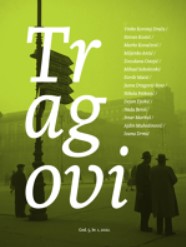Politika emocija i etničko nasilje: Zadar 1991. godine
Politics of Emotions and Ethnic Violence: Zadar in 1991
Author(s): Vinko Korotaj DračaSubject(s): Nationalism Studies, Transformation Period (1990 - 2010), Inter-Ethnic Relations, Ethnic Minorities Studies, Politics of History/Memory, Peace and Conflict Studies, Wars in Jugoslavia
Published by: Srpsko narodno vijeće, Arhiv Srba u Hrvatskoj
Keywords: Cultural politics of emotions; Ethnic violence; Zadar; Serbs; “Kristallnacht”; Ethnicization;
Summary/Abstract: The author examines ethnic violence against the Serbs in Zadar in 1990 and 1991 by using different written sources (newspapers, judicial documents, police reports, medical and forensic examinations and similar) as well as by interviewing people who lived in Zadar. The period in question is characterized by the first instances of ethnically motivated discrimination, evident in losing jobs, creation of the atmosphere of fear and mistrust, in destruction of property during the Zadar's “Kristallnacht” and after, as well as in activities of “Troikas” which were violently entering into flats and mistreated Serbs. The aim was – to make Serbs scared in order for them to leave the city. In October 1991 there was also a murder of three Serbs who were captured and held in an improvised prison. The author links these events with the discursive acting by state and local political elites and uses theory of cultural politics of emotions by Sarah Ahmed (“The Cultural Politics of Emotions”). Ahmed argues that emotional statements have also performative role, not only declaratory, as they can create, form and territorialize area of social relations. The role of fears and emotion of anger was big during the 1990s, but not adequately recognized in many studies on ethnic conflicts in former Yugoslavia. The author examines how did the political discourse that was articulated in Croatia since the first multiparty elections in 1990, influence the process of ethnic divisions and of formation of social situation in which interethnic violence became socially acceptable form of political activities. In addition, the article examines how did the Serbs feel about their victimization by others, as well about the lack of protection by state institutions.
Journal: Tragovi: časopis za srpske i hrvatske teme
- Issue Year: 5/2022
- Issue No: 1
- Page Range: 7-43
- Page Count: 37
- Language: Croatian

